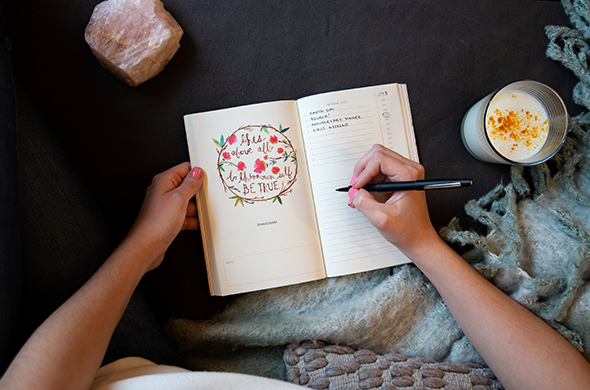Stress is personal, both biological and psychological, affecting the mind and body on a cellular level. Naturally, we find stress to be bad, something that holds us back, but what would happen if we changed our perspective? A natural part of our human experience, stress can be anything life brings our way that has the potential to upset our balance. In 2017, anxiety disorders were the most common mental illness, affecting 40 million adults in the United States age 18 and older.

Types of Stress
Acute Stress
The most widely experienced type of stress. It’s typically caused by daily demands and the pressures of life. This form of stress can manifest excitement, joy, and a sense of thrill.
Episodic Acute Stress
This type happens when we must handle a number of pressures or demands simultaneously, causing us to go into crisis mode.
Routine Stress:
Routine stress is consistent and on-going. The body never receives a clear signal to return to normal functioning. This form of stress can put a strain on your health over time, leading to depression or anxiety. It can also cause physical symptoms such as muscle tension, dry mouth, pounding heart, and more.
Your Gut Matters
Eating habits also play a role in mental health and stress. Research has shown that probiotic-rich foods decrease anxiety and boost the mood. That makes kefir a great well-being tool because it contains 12 live and probiotic cultures. Psychiatrist James Greenblatt explained that “the gut is really your second brain. There are more neurons in the GI tract than anywhere else except the brain.” As research continues to develop, it’s becoming more and more apparent that there is a link between the gut and the brain. What was once suspected as one-way communication (brain to gut) is now understood to be more of a two-way system. Thus, the health of our gut may directly impact the health of our minds.
Yoga, exercise, painting, and gardening are some great ways to connect the mind and body. Science even says that looking at colors can relax you! The colors that affect the mood in a positive way are blue, green, pink, white, violet, grey, and yellow. That is why spending time in nature is one of the most important factors when it comes to mental health and easing stress.
Calming Journal Prompts
Journaling is an outlet that allows you to access a state of mindfulness by processing emotions and increasing self-awareness. The science of journaling was discovered by psychologist and researcher James Pennebaker, he found that regular journaling strengthens immune cells called T-lymphocytes. Researchers are continuing to understand how writing may benefit the immune system, and why some people appear to benefit more than others. Here are some journal prompts to help you get started:
What do I want my life to FEEL like?
Dear younger self…
How are you feeling emotionally?
Write down everything that inspires you.
What are 3 things that you’re currently doing that make you feel stressed? How can you stop doing these things or change the outcome?